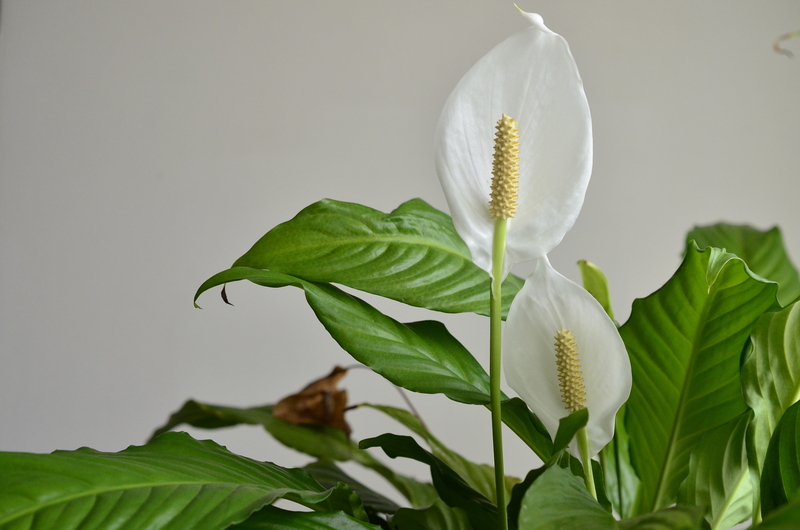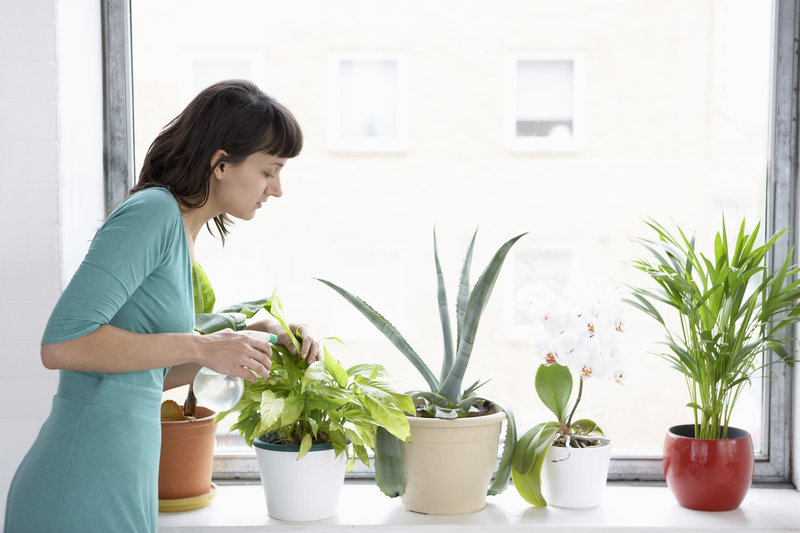Winter Care for Garden Plants: A Comprehensive Guide
Posted on 16/06/2025
Winter Care for Garden Plants: A Comprehensive Guide
As winter approaches, your beautiful garden can face a host of challenges. Frost, snow, chilling winds, and reduced sunlight mean your beloved plants need special attention and protection. Whether you're a seasoned gardener or a beginner, understanding proper winter care for garden plants is essential for keeping your green spaces healthy and vibrant year after year.
Why Winter Care for Garden Plants is Essential
The coldest months of the year can be difficult for both perennial and annual plants. Many species experience stress from:
- Frost damage
- Freeze-thaw cycles
- Desiccation (drying out)
- Ice accumulation
- Reduced photosynthesis from short, cloudy days

Understanding Your Garden's Needs
Each garden is unique, and winter plant care strategies should reflect your region's climate, the specific plant types you have, and your soil conditions. To develop a successful winter plan, consider:
- Hardiness zone: Know which plants are suited to your area's lowest temperatures.
- Type of plants: Some, like evergreens, need less protection, while tender perennials or annuals require more care.
- Microclimates: Check for areas that are warmer (next to walls) or colder (low-lying spots where cold air settles) in your yard.
Preparing Outdoor Plants for Winter
1. Clean Up Your Garden
Winter garden preparation starts with cleaning. Remove dead plant material, spent annuals, and any weeds. This not only improves appearance, but can also prevent pests and diseases from overwintering.
2. Mulching for Insulation
Mulching is a fundamental aspect of winter garden plant care. A thick layer of mulch:
- Helps the soil retain warmth
- Prevents freeze-thaw cycles that can damage roots
- Reduces moisture loss
3. Watering Before Winter
Moist soil better insulates plant roots than dry soil. Before the first hard frost, give your garden a thorough watering—especially evergreens and new plantings. Once the ground freezes, plants can no longer absorb water, so it's crucial to start winter with adequate moisture.
4. Protecting Tender Plants
Some plants need added protection, especially in colder zones or during unusually harsh winters:
- Wrap young trees and shrubs with burlap or tree wrap to shield from wind and sunscald.
- Cover tender perennials with frost blankets or overturned pots.
- Consider moving potted plants indoors or into a sheltered spot.
5. Pruning
Pruning before winter can help many plants, but avoid pruning at the wrong time. For most shrubs and trees, late fall or early winter isn't the best time (except for dead or diseased wood), since cuts can encourage new growth that's sensitive to cold. Prune after the plants are fully dormant, or wait until late winter or early spring.
Taking Care of Indoor and Potted Plants in Winter
Containerized plants and houseplants also require seasonal attention:
- Move potted plants inside or to semi-protected areas like garages or greenhouses.
- Reduce watering: Most houseplants need less water in winter due to reduced growth.
- Increase humidity by misting, grouping plants together, or using humidity trays.
- Ensure bright, indirect light—clean your windows for maximum sunlight.
- Keep plants away from cold drafts and heat sources (like radiators).
Special Winter Care for Different Plant Types
Perennials
Many perennial plants are hardy, but benefit from a mulch layer after the ground cools down. Cut back dead stems if recommended for your species. Divide and transplant perennials in late fall or early spring.
Annuals
Most annuals complete their life cycle in one year. In winter, pull up and compost annuals unless you want to collect seeds.
Bulbs
Cold-hardy bulbs like tulips and daffodils are best planted in fall, since they need a period of chilling to flower. For tender bulbs (dahlias, cannas), dig up after the first frost, dry, and store in a cool, dark place for the winter.
Evergreens
Evergreen shrubs and trees lose water through their leaves all winter. Give them extra water before the ground freezes and apply mulch. Shield them from harsh winds with burlap wraps if needed.
Common Winter Threats and Solutions
Frost Heaving
Repeated freeze-thaw cycles can push plant roots out of the ground. Thick mulch helps regulate soil temperature and prevents this.
Salt Damage
Road salt and de-icing chemicals can leach into your garden. Protect plants along sidewalks by creating barriers, and use sand or pet-safe ice melts instead.
Wildlife Damage
Hungry rabbits, deer, and other animals may nibble your plants in winter. Install fencing, use repellents, or wrap trunks with tree guards.
Winter Greenhouse and Cold Frame Gardening
Extend your growing season by using a greenhouse or cold frame. Even unheated structures offer welcome shelter for winter vegetables and sensitive ornamentals. Inside:
- Monitor temperature and humidity
- Water cautiously to avoid rot
- Provide ventilation on sunnier winter days
- Double up with row covers for added frost protection
Planning Ahead for Next Spring
Good winter garden plant care not only protects your plants, but also lays the foundation for spring success. During winter:
- Monitor your garden for signs of damage and adjust your protection methods as needed.
- Keep a gardening journal on overwintered plant survival and winter weather trends.
- Plan your spring planting and order seeds.
- Sharpen, clean, and repair your garden tools for the growing season ahead.
Top Winter Gardening Tips: Dos and Don'ts
- Do: Mulch liberally, especially around the base of tender plants.
- Do: Water before the deep freeze arrives.
- Do: Protect young trees and sensitive shrubs with wraps or burlap screens.
- Do: Clean up fallen leaves and plant debris to stop pests and disease.
- Don't: Fertilize in late fall--this can spur untimely new growth.
- Don't: Walk on frozen or waterlogged lawns and garden beds, as this can compact the soil.
- Don't: Forget to check on overwintering pots and stored bulbs periodically.

Frequently Asked Questions About Winter Plant Care
How do I know if my plant needs winter protection?
Research your plant's hardiness. If your region gets colder than your plant can tolerate, provide extra protection like mulching, shelter, or moving it indoors.
Should I fertilize my plants during winter?
No, most plants are dormant and fertilizing encourages weak, out-of-season growth. Wait until early spring to resume feeding.
What plants can survive winter outdoors?
Many perennials, evergreens, and hardy bulbs can survive in their appropriate hardiness zones, especially with adequate winter plant care.
Can I grow vegetables in winter?
Cold-hardy vegetables like kale, spinach, and carrots can be grown under covers or in unheated greenhouses. Consider using cold frames or row covers for added insulation.
Conclusion: Preparing Your Garden for Winter Success
Winter care for garden plants is essential for preserving the health and beauty of your outdoor and indoor green spaces. With proper preparation—including mulching, watering, and strategic protection—your plants can emerge from winter's chill ready to flourish in spring. By anticipating potential threats and embracing best practices, you're investing in a thriving garden year after year.
For successful winter gardening, remember: Clean up, insulate, protect, reduce watering, and check your plants regularly. With these comprehensive strategies, your garden will weather any winter storm!
Latest Posts
The Ultimate Guide to Refreshing a Neglected Garden
Relax and Unwind: Zen Gardens for Calm Outdoor Spaces
Creative Solutions to Eradicate Weed Issues

